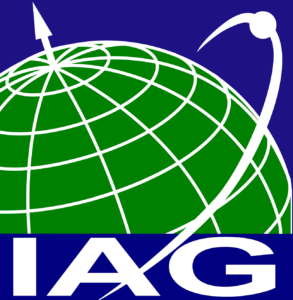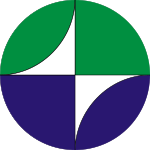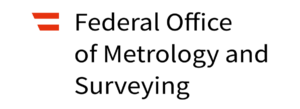IAG Symposium Reference Frames for Applications in Geosciences (REFAG2026)
and GGOS/IERS Unified Analysis Workshop (UAW2026)
2 March 2026 – 6 March 2026
The Technical University of Munich (TUM) is proud to lead global geodetic research as it currently holds the presidents of Commission 1 “Reference Frames” of the International Association of Geodesy (IAG) and the IAG Global Geodetic Observing System (GGOS). In this prominent role, TUM is excited to host two landmark events in 2026:
- REFAG2026, 2 – 4 March 2026 | The IAG International Symposium on Reference Frames for Applications in Geosciences
- UAW2026, 5 – 6 March 2026 | The joint GGOS/IERS (International Earth Rotation and Reference Systems Service) Unified Analysis Workshop
These events will bring together leading experts, researchers, and institutions to shape the future of global geodesy — right here at TUM in Munich, Germany. All IAG members and associates, as well as professionals and individuals interested in the theory and application of reference frames in geodesy, Earth sciences and astrometry, are invited to attend the REFAG2026 conference. Participation in the UAW2026 is by invitation only.
Topics
Contributions on the following topics are welcome:
- Importance of reference frames for Earth sciences – Essential geodetic variables, UN-GGCE, GGOS, geodynamics, global change phenomena.
- Theory of reference systems and frames – Celestial reference system/frame, terrestrial reference system/frame, fundamental constants and geophysical background models, height reference frames methodologies, Earth rotation, stochastic modelling, optimisation, coordinate representation, geodetic datum parameters, apparent geocenter motion.
- National and regional reference frames in deformation zones – Kinematic reference frames, height reference frames, coordinate transformation, standards, real-time applications, GIS implementation.
- Systematic errors and reference frame consistency – Consistency between celestial and terrestrial reference frames, consistency between global and regional/national frames, comparison of reference frame realisations, systematics of space-geodetic techniques, IERS Conventions, Earth orientation.
- Development and prospects for optimal geodetic ground-based infrastructure – GGOS core sites, simulations, instrumental developments, local tie automation, atmospheric ties, clock ties, capacity development.
- Integration of space-based co-locations for enhanced reference frames – Co-location in space, Genesis, precise orbit determination based on multiple observation techniques, data combination, simulations.
- Lunar and planetary reference systems and frames – Lunar reference frames, time systems, interoperability between cislunar missions, lunar geoid and rotation, geodetic and navigation systems for the Moon, observation techniques for extra-terrestrial reference system realisations.
Science Team
- Urs Hugentobler, President IAG Commission 1: Reference Frames, Satellite Geodesy, TUM School of Engineering and Design, Technische Universität München, Munich, Germany
- Xavier Collilieux, Vice-President IAG Commission 1: Reference Frames, Institut de physique du globe de Paris, CNRS, IGN, Université de Paris Cité, Paris, France
- Krzysztof Sośnica, President Sub-Commission 1.1: Coordination of Space Techniques, Institute of Geodesy and Geoinformatics, Faculty of Environmental Engineering and Geodesy, Wrocław University of Environmental and Life Sciences, Wrocław, Poland
- Mathis Bloßfeld, President Sub-Commission 1.2: Global Reference Frames, Deutsches Geodätisches Forschungsinstitut (DGFI-TUM), TUM School of Engineering and Design, Technische Universität München, Munich, Germany
- Fernand Bale, President Sub-Commission 1.3: Regional Reference Frames, BNETD – Bureau National d’Etudes Techniques et de Developpement, Abidjan, Côte d’Ivoire
- Maria Karbon, President Sub-Commission 1.4: Interaction of Celestial and Terrestrial Reference Frames Department of Applied Mathematics, University of Alicante, Alicante, Spain
- Laura Sánchez, President Global Geodetic Observing System (GGOS), Deutsches Geodätisches Forschungsinstitut (DGFI-TUM), TUM School of Engineering and Design, Technische Universität München, Munich, Germany
- Robert Heinkelmann, Analysis Coordinator of the International Earth Rotation and Reference Systems Service (IERS), Helmholtz Centre Potsdam GFZ German Research Centre for Geosciences, Potsdam, Germany
Please download the meeting handbook for more details
Dates
- 4 June 2025 | 1st announcement (website launch, session description, call for abstracts).
- 15 June 2025 | Registration and abstract submission open.
- 1 August 2025 | 2nd announcement (2nd call for abstracts).
15 October 2025| 2 November 2025 Abstract submission deadline.- 15 November 2025 | 3rd announcement (draft schedule and abstract acceptance notifications).
- 15 December 2025 | Early Bird registration deadline.
- 31 January 2026 | Registration deadline.
- 31 January 2026 | Final scientific programmes for REFAG2026 and UAW2026.
- 2-6 March 2026 | REFAG2026+UAW2026.
- 30 April 2026 | Deadline for paper submission to the IAG Symposia Series.
Please download the meeting handbook for more details
Abstract Submission
All colleagues working on the topics of REFAG2026 or related themes are invited to submit an abstract by 15 October 2 November. Abstracts received after this deadline will not be accepted and will not be included in the final programme of the conference. Authors will be informed of the acceptance/rejection of their abstract by email by 15 November 2025. By submitting an abstract, the author or one of the authors of a joint work is required to complete the online registration before 15 December 2025. If no registration has been received by that date for one of the authors of the abstract, it will not be included in the meeting programme. If authors know that their presentation will not be presented, they are asked to withdraw their abstract as soon as possible (by contacting ).
- Participants are invited to submit their papers to the IAG Symposia Series, published by Springer. The IAG Symposia Series is published Open Access, and free of charge to the authors. The cost of publication is borne by the IAG. All presentations, poster and oral, are eligible. All Symposia Series volumes are peer reviewed and submitted for indexing.
- Please note that a non-refundable abstract processing fee (APC) of €40 is charged for each abstract submitted.
- No more than one abstract can be submitted by the same first author.
- Abstracts cannot be submitted by fax or email.
When submitting an abstract, authors are required to provide the following information:
- Title
- Author(s)
- Affiliation(s)
- Main body of the abstract (up to 500 words).
- Keywords (please include 3–5 keywords).
- Topic (select 1 out of 7 REFAG2026 topics)
- Presentation preference (oral/poster)
- Intention to submit a paper to the IAG Symposia Series (yes/no)
The abstract submission form is available at https://www.events.tum.de/frontend/index.php?sub=245
Licence and copyright
The following licence and copyright agreement is valid for any abstract submitted to the REFAG2026 Symposium:
In submitting the abstract, the authors certify that (1) they are authorised by their co-authors to submit the abstract; (2) they secure the right to reproduce any material that has already been published or copyrighted elsewhere; (3) they agree to the following license and copyright agreement:
- Copyright on any abstracts is retained by the author(s).
- Authors grant any third party the right to use the abstract freely if its original authors and citation details are identified.
The abstract is distributed under the Creative Commons Attribution 3.0 Unported Licence.
Please download the meeting handbook for more details
Registration
The meetings will take place in person only; online participation is not possible. All colleagues working on the topics of REFAG2026 or related themes are invited to submit an abstract by 15 October 2 November. Registration is open from 15 June 2025 to 31 January 2026. The deadline for Early Bird registration is 15 December 2025. By registering, the participants agree that their data will be stored internally in the conference records. The data will only be used for meeting-related organisational issues. Acceptance of abstracts will be confirmed by 15 November 2025.
Registration fees
Registration fee includes:
- REFAG2026: the conference kit, morning and afternoon coffee breaks, lunch each day, and the conference dinner.
- UAW2026: morning and afternoon coffee breaks and lunch each day.
Cancellation policy
Early bird and regular registrations cancelled before 31 January 2026 are eligible for a 30% refund of the registration fee. No refund is available for cancellations made after 1 February 2026.
The registration facility is available at https://www.events.tum.de/frontend/index.php?sub=245
Please download the meeting handbook for more details.
Travel Award
The IAG provides the opportunity for young scientists from developing countries to receive a travel award for the REFAG2026 Symposium.
Please, refer to the IAG website (https://geodesy.science/iag/awards/iag-travel-award/) for the detailed rules and procedures to apply for an IAG travel award.
Logistics and Contact
The REFAG2026 Symposium will be held from 2 to 4 March 2026 at the
📍 Landesamt für Digitalisierung, Breitband und Vermessung (LDBV), Alexandrastraße 4, 80538, Munich, Germany
Daily sessions are scheduled between 08:30 and 17:30, with a lunch break between 12:00 and 13:00. The GGOS/IERS Unified Analysis Workshop (UAW2026) will take place in the same location in the two days following the REFAG2026 Symposium. Participation in UAW2026 is by invitation only. All meeting details, including venue information and recommendations for travel and accommodation, are available in the meeting handbook.
Local Organizing Committee
- Mathis Bloßfeld, Deutsches Geodätisches Forschungsinstitut (DGFI-TUM), TUM School of Engineering and Design, Technische Universität München, Munich, Germany
- Urs Hugentobler, Satellite Geodesy, TUM School of Engineering and Design, Technische Universität München, Munich, Germany
- Laura Sánchez, Deutsches Geodätisches Forschungsinstitut (DGFI-TUM), TUM School of Engineering and Design, Technische Universität München, Munich, Germany
- Stefanie Daurer, Satellite Geodesy, TUM School of Engineering and Design, Technische Universität München, Munich, Germany
- Chanye Fu, Satellite Geodesy, TUM School of Engineering and Design, Technische Universität München, Munich, Germany
- Felix L. Müller, Deutsches Geodätisches Forschungsinstitut (DGFI-TUM), TUM School of Engineering and Design, Technische Universität München, Munich, Germany
Contact
Program
Key documents for the REFAG2026 Symposium
REFAG2026 Handbook
REFAG2026 Abstract Book
REFAG2026 Program
Key documents for the UAW2026
UAW2026 Handbook
UAW2026 Program and Pre-meeting Reading




